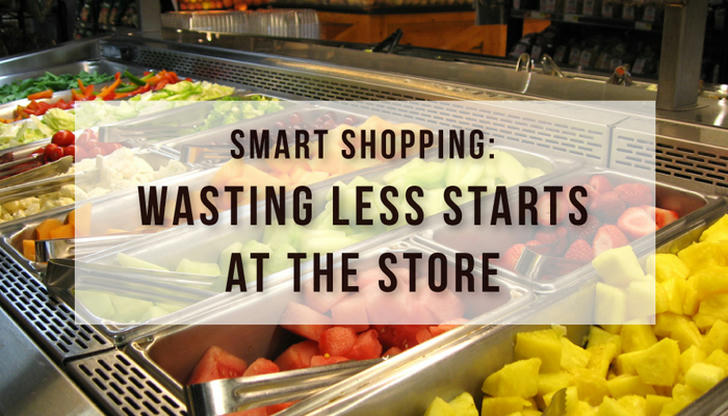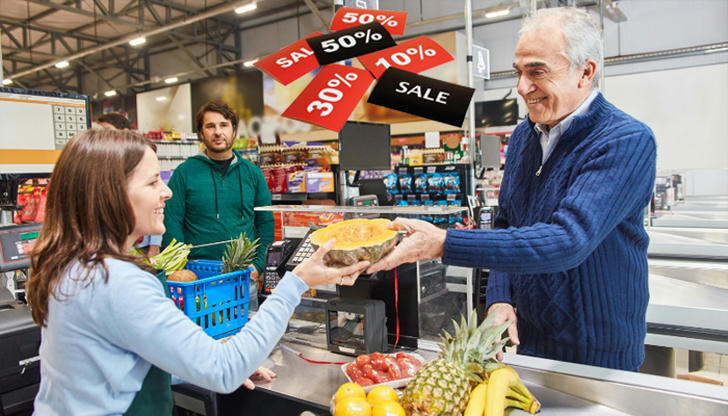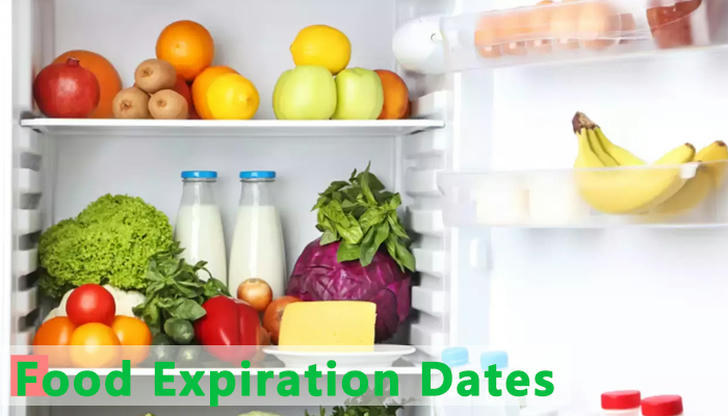Smart Grocery Shopping: How to Save Money and Reduce Food Waste Every Week
Grocery shopping is an essential part of our weekly routine, but it can also be a significant drain on our wallets and lead to unnecessary food waste. In fact, studies show that food waste is a major concern in many Western countries, where millions of tons of food are discarded every year. However, with a few smart shopping habits, it's possible to save money while reducing food waste. In this article, we'll explore how to shop more efficiently, plan meals wisely, and store food properly to save money and minimize waste every week.

I. Know Your Needs
The first step in smart grocery shopping is to understand your household's actual needs. This starts with planning your meals for the week based on the preferences and dietary needs of your family members. Taking the time to create a menu for the week ensures you buy only what you need, and it reduces the chances of making impulse purchases.
Make a Shopping List: Before heading to the store, create a detailed shopping list based on your weekly meal plan. This prevents you from buying unnecessary items that may end up wasted. Apps like AnyList or Google Keep are great for creating and organizing grocery lists.
Use Your Existing Stock: Take inventory of what you already have in your pantry and fridge. Make sure to use up ingredients that are nearing their expiration dates before buying new ones.
II. Set a Budget
Grocery expenses can add up quickly if you're not careful. To keep your spending under control, it's essential to set a budget.
Establish a Weekly Budget: Assess how much you can realistically spend on groceries each week. Use budgeting tools or apps like Mint to track your spending. If you find that you're overspending, cut back on luxury items or focus on buying more affordable brands.
Shop Around for Prices: Not all supermarkets offer the same prices, even for the same products. Compare prices across local grocery stores, and consider joining loyalty programs to take advantage of exclusive discounts. For organic or local produce, try checking out farmer’s markets for better prices.
III. Take Advantage of Discounts and Offers

Discounts and promotions can help you save significantly on your grocery bill. Learning how to maximize these opportunities is key to reducing costs.
Use Coupons and Cashback Apps: Many stores offer digital coupons that you can easily apply to your purchases. Apps like Honey and Rakuten offer cashback deals when shopping online, and store-specific apps often feature additional discounts.
Sign Up for Memberships: Grocery store memberships or loyalty cards often provide access to exclusive offers, like members-only sales or discounted prices on certain items. Make sure to check your local store for such deals.
Look for Bulk Discounts: Purchasing items in bulk can be a great way to save money, especially for pantry staples like rice, pasta, and canned goods. Just be sure you’ll be able to use everything before it expires.
IV. Stick to Your List and Plan
Sticking to your shopping list is one of the most effective ways to avoid overspending and unnecessary waste.
Avoid Impulse Purchases: It’s easy to get tempted by in-store promotions and flashy displays. Try to focus on your list, and avoid aisles that contain non-essential items.
Shop with a Purpose: Know exactly what you're looking for in each section of the store. For instance, head straight to the fresh produce section and skip the processed foods unless absolutely necessary.
V. Proper Food Storage: Extend Freshness
Once you've bought your groceries, the next step is proper food storage to ensure that everything stays fresh for as long as possible. This helps you avoid throwing out food before it’s been used.

Store Produce Correctly: Fruits and vegetables have specific storage requirements. Some, like apples and pears, should be kept in the fridge, while others, like tomatoes and bananas, do better outside. Research proper storage methods for each type of produce to extend their shelf life.
Freeze Surplus Items: If you have leftover vegetables or meat that you won’t use in time, consider freezing them for later use. Many vegetables, like carrots and peas, freeze well, and meat can be portioned into meal-sized bags.
Batch Cooking and Meal Prep: Cook in bulk and freeze meals for later use. This helps reduce waste because it ensures you use all your ingredients before they spoil. It also saves you time during the week when you're too busy to cook from scratch.
VI. Be Creative with Leftovers
One of the easiest ways to cut down on food waste is by repurposing leftovers into new meals.
Repurpose Leftover Ingredients: Leftover roasted chicken can be used in soups, sandwiches, or salads. Stale bread can be turned into croutons or breadcrumbs. Don’t throw away any bits of leftover vegetables—throw them into a stew, soup, or stir-fry.
Make Leftover Days a Habit: Set aside one day each week to finish off leftovers, rather than cooking a whole new meal. This reduces the amount of food that needs to be prepared and saves you money in the process.
VII. Keep an Eye on Expiration Dates

Understanding how to manage expiration dates is crucial to reducing food waste.
First In, First Out: When you stock your pantry or fridge, practice the "first in, first out" method. Place older items in the front so they’re used before newer ones. This helps prevent items from being forgotten and going bad.
Understand "Best By" vs. "Use By" Dates: Many products can still be safe to consume after their "best by" dates have passed. Use your senses—sight, smell, and taste—to judge if something is still good. In many cases, "best by" dates are more about quality than safety.
Regularly Clean Your Pantry: Clean your pantry and fridge weekly, removing expired or nearly expired items. This keeps your kitchen organized and prevents you from accidentally buying the same things over and over again.
VIII. Conclusion
Smart grocery shopping doesn’t require drastic changes, but it does involve making more mindful choices. By planning meals, sticking to your shopping list, using discounts and offers, and properly storing food, you can save money and reduce food waste significantly. This small effort can make a big difference, not just for your wallet, but also for the environment. Remember, the key to smart grocery shopping is consistency. With a little practice, these habits will become second nature and help you make more sustainable choices in your daily life.
Appendix: Useful Tools and Resources
Budgeting Apps: Mint, YNAB (You Need A Budget)
Shopping List Apps: AnyList, Google Keep
Food Storage Guides: The National Center for Home Food Preservation
Discounts and Coupons: Honey, Rakuten, Ibotta
